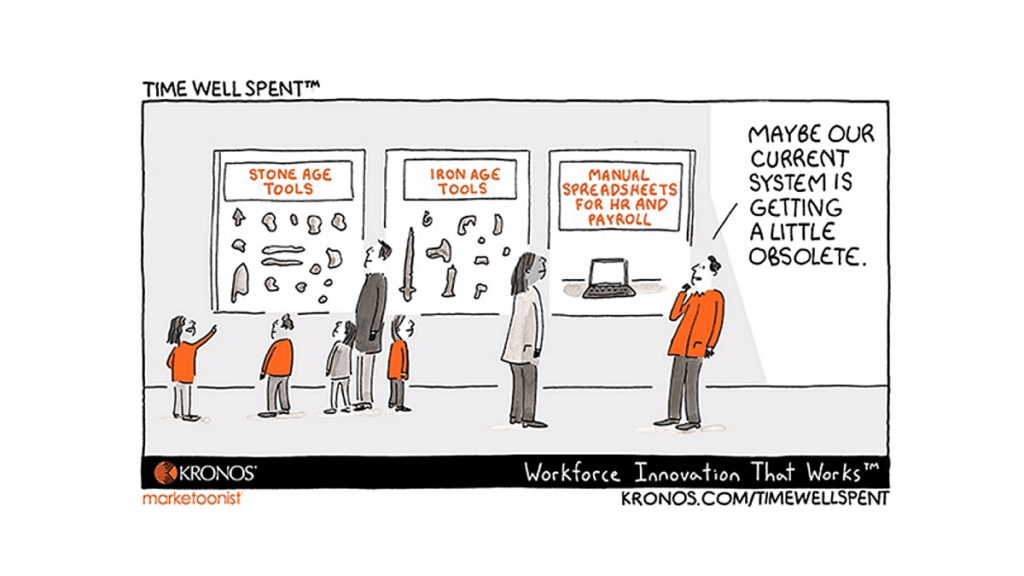Technology: Do Not Let Your Company Become Obsolete

While you know that I love my technology, there are some activities that I enjoy doing what some might term “old school”. Like I enjoy having a paper planner. I take handwritten notes during conferences. Some might say that I’m behind the times. Others will cite the research that says writing things down helps with retention. Frankly, I like it and it works for me. That’s what counts. And I’m not the only one. Do a quick internet search for paper planners and you will see there’s a whole market out there for people just like me.
But whether people are buying paper planners isn’t the point of today’s article. This Time Well Spent from our friends at Kronos reminded me that there’s a fine line between doing the things we’ve always done them and staying relevant.
Today’s technologies can take our work to the next level. Using my story above about paper planners, let me add that I don’t keep my calendar in a paper planner. I use an online calendar. It’s easier to manage appointments and very flexible when I need to make changes (which is a lot). When we’re talking about organizational processes such as payroll, it could make a lot of sense to automate them – even though they’re working – because the result is more productivity.
Our stakeholders expect technology. Again, we’re not saying that manual processes are bad or wrong. But in today’s business world, our key stakeholders (i.e. customers, suppliers, employees) expect us to have certain processes automated. They’ve become accustomed to it and not having technologies in place could signal an organization that’s behind the times. This could have an impact on the company’s ability to hire the best talent and retain customers.
It’s easier to bridge short gaps than long ones. The longer organizations (and individuals) wait to adopt technologies, the harder it becomes to get up to speed. Implementing new technologies isn’t supposed to be painful. What can often contribute to frustration is when employees are forced to learn by drinking through the firehose (versus in baby steps). Sorry for all of the analogies there but you see my point. It’s easier to learn and retain incrementally.
I’d like to think at this point we’re not having a discussion about whether technology is a trend. It’s here to stay and it’s moving at light speed. And, I completely understand if organizations don’t want to be early adopters. But that doesn’t mean the answer is staying in the Dark Ages. Organizations need to examine their current processes – even the ones that are working well – and ask themselves, “Can we do better?”
13